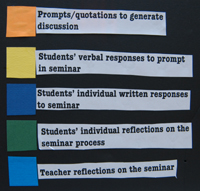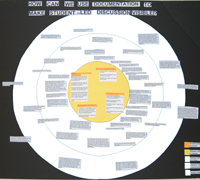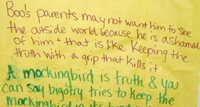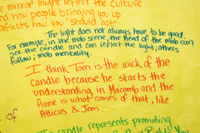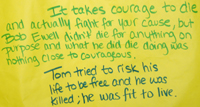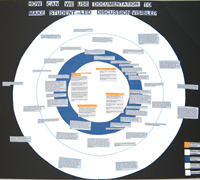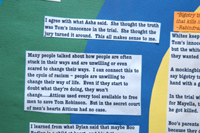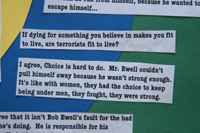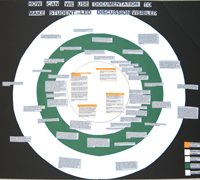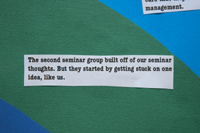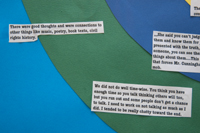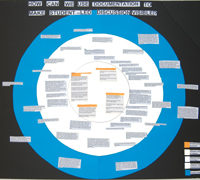I agree with what Asha said. She thought the truth was Tom?s innocence in the trial. She thought the jury turned it around. This all makes sense to me.
Many people talked about how people are often stuck in their ways and are unwilling or even scared to change their ways. I can connect this to the cycle of racism ? people are unwilling to change their way of life. Even if they start to doubt what they?re doing, they won?t change? Atticus used every tool available to free men to save Tom Robinson. But in the secret court of men?s hearts Atticus had no case.
I learned from what Dylan said that maybe Boo Radley is a child at heart, and his father was protecting him from the outside.
I agree that the injustice tries to take control of the gold/truth/mockingbird. In denying them freedom, it slowly kills it. It is not the injustice itself that kills it, but the pain of the barrier between it and the world ? the jail, the panther?s cage, etc.
?She said you can?t judge people until you see them and know them for yourself? When you are presented with the truth, the plain facts about someone, you can see them without assuming things about them? This is the gold that Scout has that forces Mr. Cunningham to see himself in the mob.
I wonder what Bob Ewell was like as a kid.

